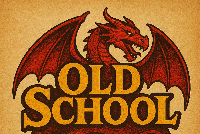Exactly what Brian said. With the addition that I recruit for games over a month before they will run to try and avoid that "I wanna play tonight" instant hook up "one and done" flavor. People that balk at that are not the kind of players that I am seeking. I put over 100% into my games, and I'm not expecting the players to put in 100%, since we all have lives, jobs and families, but Someone whose only message to me was "I wanna play ur rp" three weeks ago does not have a chance against someone who can get their own copy of the rules read them, and thoughtfully generate a character that fits the setting, style and tone as I have described what it will be like during the campaign to follow. I also ask for detailed character backgrounds, and if people can't get a character together, do not talk on skype a few times, do not show up at the meet and greet, do not participate in forums discussions, those are all reasons for booting. People that are interested, that post even one comment every few days, hit me or the other players up on skype on an off day, and work with others to plan out career paths, skills, gear, roles in the group, that's who I want. Eventually the people that end up playing are thoughtful, like the game system, setting or both, and generally get alone with each other because they are patient, diligent self starters that play as a professional, even though it is "only a game."





